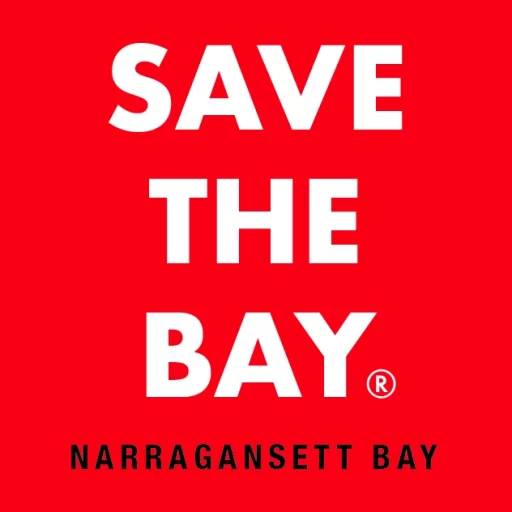Save The Bay submits testimony in support of “bottle bill”
To: The Rhode Island House Committee on Environment and Natural Resources
From: Topher Hamblett, Save The Bay Director of Advocacy
Date: February 11, 2021
Re: H 5280 – An Act Relating to Health & Safety – Beverage Container Deposit Recycling Act
Sponsors: Reps. McEntee, Cortvriend, Bennett, Hawkins, Carson, Speakman, Knight, Caldwell
Save The Bay is pleased to support this important piece of legislation. As an organization committed to improving and protecting Narragansett Bay, we strongly support measures that will reduce the amount of pollution, trash and debris that enter the Bay.
Plastic pollution is a growing problem in Narragansett Bay and in our oceans worldwide. Each year, Save The Bay helps coordinate the International Coastal Cleanup (ICC) in Rhode Island. During this mostly one-day event in September, over 2,000 volunteers remove roughly six tons of trash from over 90 shoreline cleanup sites throughout the state. In the 2019 ICC, (the most recent year for which we have final data), volunteers removed the following items from Rhode Island beaches:[1]
- 6,842 plastic beverage bottles
- 8,541 plastic bottle caps
- 21,055 plastic pieces (smaller than 2.5cm)
- 3,682 glass bottles
- 3,079 metal bottle caps
These are just numbers for what was removed, and doesn’t reflect the items that were swept out to sea, sunk to the bottom of the Bay, or were ingested by shore birds and other marine life. Plastic bottles are not only a problem near the Bay, but they also litter our inland rivers and streams, parks and open spaces. Take a walk in a local park, or along a river or shoreline, and it likely won’t take long before you spot a bottle.
Globally, the National Oceanic and Atmospheric Administration (NOAA) estimates as much as 8 million metric tons of plastic are deposited in the world oceans each year.[2] Unlike other forms of waste, plastics do not decompose, and can wreak havoc on marine life. Some plastic bottles float while others get tossed around and break down into smaller pieces and become microplastics. Microplastics (pieces smaller than 5 mm) have been found in every Rhode Island waterbody where our staff and volunteers have taken samples.
Plastic pollution is a serious and growing problem in Narragansett Bay and in our oceans worldwide, and the sooner we act to address it the better. The good news is that actions we take as a state will have a direct impact locally. With what we know about how water flows into and out of the Bay, it’s safe to say that the overwhelming majority of plastic debris around the Bay is coming from Rhode Island sources. This isn’t about cleaning up someone else’s mess; it’s about cleaning up our own mess.
Bottle deposit laws – commonly known as “bottle bills” – are not a new or radical policy proposal. Oregon enacted the nation’s first bottle deposit program fifty years ago (1971). Vermont followed in 1973, and our neighbors in Connecticut and Massachusetts passed bottle bills in the early eighties. We don’t need to guess as to the impact that a bottle bill will have. Luckily, we have decades of experience from other states to draw upon in crafting a program that makes sense for Rhode Island, and we believe that House bill 5280 does that. Container deposit laws have been proven – with decades of data – to both reduce litter and increase recycling rates. Perhaps most important to note is that no state has ever repealed their bottle bill (despite numerous efforts from the beverage industry) which speaks to the popularity of bottle bills in those states.
House bill 5280 represents an improvement over previously-introduced versions of a bottle bill:
- Save The Bay supports the 10-cent deposit amount as states with a 10-cent fee have higher collection rates than states with a 5-cent fee.
- The definitions of “beverage” and “beverage container” are inclusive and avoid “loopholes” for certain types of beverages and containers that have been problematic in other states.
- The legislation recognizes the diversity of businesses (“dealers”) that sell beverage containers, and includes different requirements for businesses based on size and volume.
- The bill also addresses concerns about “cross border redemption” and includes provisions to make retailers and distributors “whole” should they pay more in deposits than they collect.
A final note: Save The Bay recognizes that the Department of Environmental Management is chronically underfunded and understaffed to the point where the Department often struggles to carry out its core functions. If additional work and responsibilities are to be carried out by DEM, they should be provided with additional resources necessary to perform that work. It’s also worth considering the role that Rhode Island Resource Recovery or the Department of Business Regulation could – or should – play in administering such a program.
Save The Bay is thankful to Representative McEntee for her leadership on this important issue. Thank you for considering our comments.
[1] https://savebay.org/wp-content/uploads/ICC-Brochure-for-WEB.pdf
[2] https://oceanservice.noaa.gov/hazards/marinedebris/plastics-in-the-ocean.html

